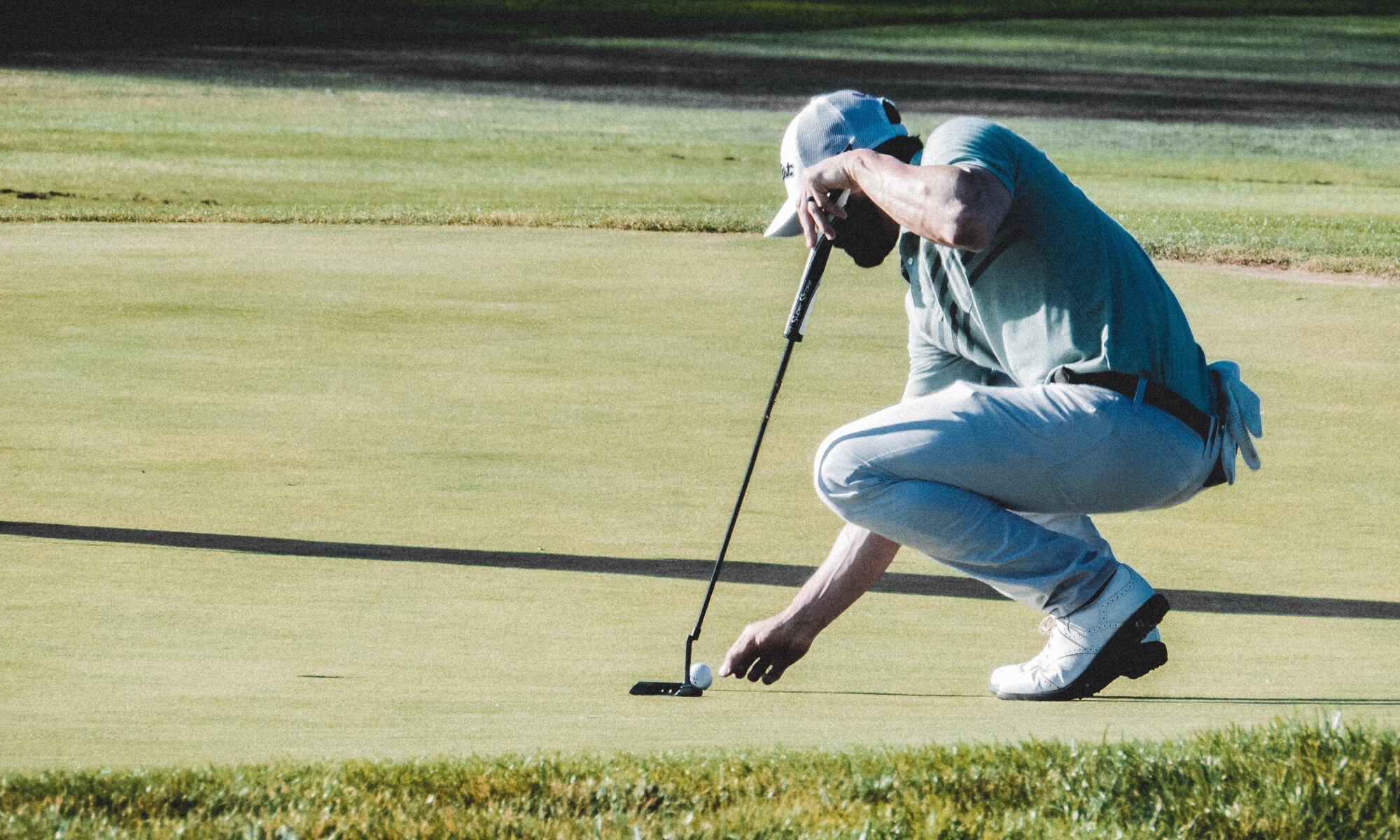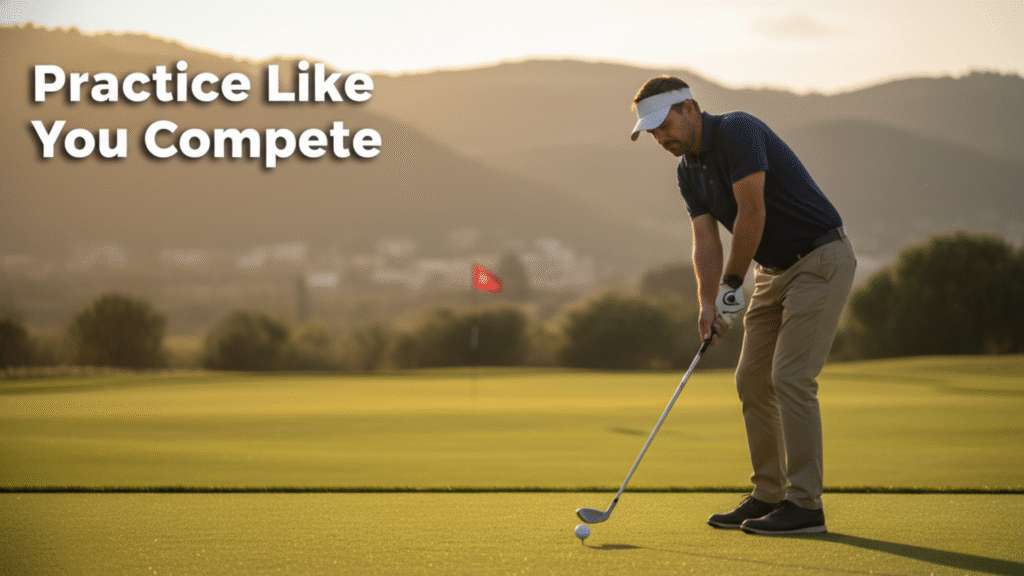The Missing Link Between Range Success and On-Course Confidence
Every golfer knows the feeling—you’re hitting perfect shots on the range, but when the first tee arrives, everything feels different. The swing that once felt automatic suddenly tightens. The rhythm disappears. It’s a reminder that you have to practice like you compete if you want your confidence and performance to hold up under pressure.
Most golfers practice comfortably, not competitively. The range becomes a place to refine smooth motion rather than to recreate the focus and commitment of real play. True improvement happens when your training reflects your playing—when every shot in practice feels meaningful.
Why It Matters
Your brain doesn’t differentiate between the range and the course—it only recognizes the emotional state you train in. If your practice is relaxed, repetitive, and without consequences, your mind learns to stay calm but not to be prepared. When competition arrives, the unexpected rush of adrenaline can disturb your flow.
To close that gap, you need to bring game-day emotions into every practice. Training like you’re competing helps your body and mind perform together under the same mental conditions you’ll face when it matters most.
Action Plan: Turning Practice Into Performance
1. Structure Every Session.
Warm up as usual, then switch into “performance mode.” Pick one club, one target, and hit just one ball per shot. Follow your full pre-shot routine. This helps build trust and rhythm in realistic conditions.
2. Keep Score.
Track fairways hit, greens in regulation, or distance to target. When you measure results, you build accountability—and accountability fosters consistency.
3. Simulate Pressure.
End your session with a high-stakes shot: one ball, one target, one chance. Whether it’s a wedge to a flag or a drive between two posts, learn to commit when something’s on the line.
4. Reflect Afterward.
Reflect on what you felt, not just what you did. Were you committed? Distracted? Over-focused on mechanics? Honest reflection turns repetition into mastery.
The Payoff
When you practice as if you’re competing, you start to play as if you’re actually in a competition. You’ll notice the same feelings, routines, and flow when under pressure—and your confidence will grow with each round.
Golf isn’t about perfection; it’s about preparation and trust. The next time you hit the range, don’t just swing at balls—focus on training your mind.
Train your focus, not just your swing—and your game will improve.
Read More from The Modern Psychology of Golf
Learn how to elevate your mindset, play with confidence, and perform when it matters most.



